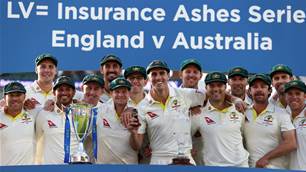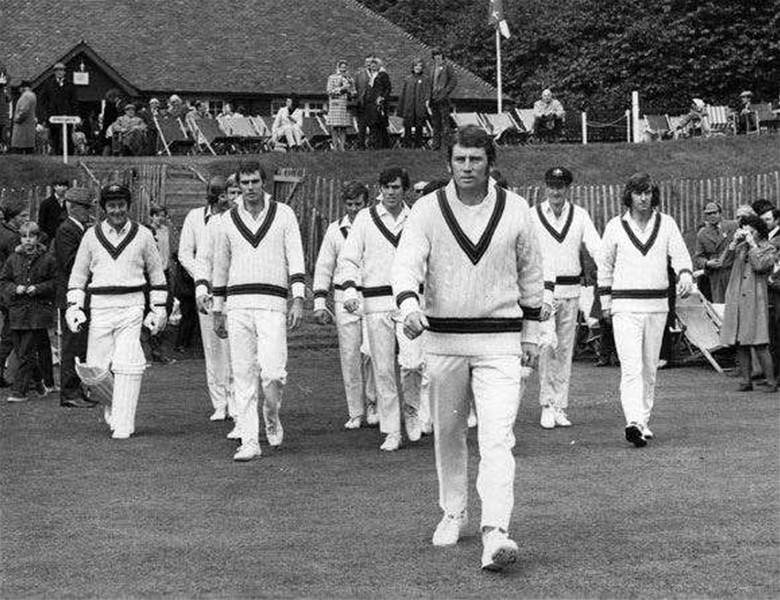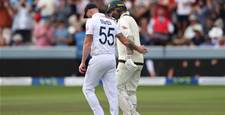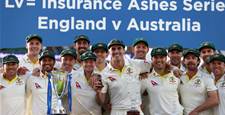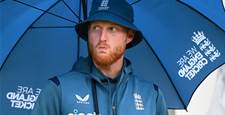Ian Chappell can sometimes sound tough in his criticisms on TV; that’s just him calling it as he sees it.
You make the confession in your book that it was you who actually taught Doug Walters how to smoke his first cigarette: you appear to have been a very good teacher ... Ha. No, Dougie was a fast learner.
How much better do you reckon the players of that era might’ve been if they did all the fitness work that today’s professional players go through? I don’t think it would’ve been any different, really. You know, Warney’s been a smoker the whole time he’s played. And I think you’d get quite a shock if you realised how much fitness work some of those guys did back then. But they did it in the off-season. I know I did a hell of a lot of running. Dennis Lillee got a shock one day when he went on a training run on a tour of England, and I said, “Hang on, I’ll come too.” He looked at me a bit strangely, but told me afterwards he’d thought to himself, “I’m going to burn this bastard off because he’s just a bloody batsman and he’s not that fit.” He said he got a hell of a shock when I stayed with him. When we finished, I was only a couple of yards behind him. He said, “I looked at you a bit differently after that.”
That’s cardio training: did you ever see any other players from your day lift anything heavier than a cricket bat? No, weightlifting wasn’t a thing ... I think Dennis started doing it at some point in his career.
There’s a dilemma now working out how much bowlers should bowl – whether they should be rested or rotated or whether you just pick the best available at any time. What’s your take there? I’m not sure there’s a simple answer, but I was talking to (brother) Greg about this the other day and he said that one of the things they’re getting right is they’ve discovered that if a bowler just bowls in T20 games and then goes straight into a Test match, going from a small workload to a heavy workload, it’s almost a guarantee of injury. And I think that might be part of the reason they’re saying Pat Cummins isn’t going to play until the third Test match.
And they brought Shane Watson back from the T20 Champions League before the end ... Yeah, to try and build up a bit of a load ... I think that’s a bit of a nonsense. On two counts: Cricket Australia says it’s doing it in the best interests of the Australian cricket team and the best interests of Shane Watson. Well, I don’t understand how it can be in the best interests of Shane Watson, because anybody who’s a competitor – and Shane is certainly that – doesn’t get halfway through a tournament, plays in the round robin stage, and then stops playing in the knockout stage ... As a competitor, once you start something, you want to try and finish it. And obviously you’re hoping the finish is the final and you want to win it. It’s bad enough if you’re denied by injury. You don’t want to be denied like that ... They’d have been better off stopping him going all together – I think he would’ve preferred that. The other thing is, I think he’s such a good opening batsmen, that’s where I’d be batting him ... I had a blue with Greg once at the Adelaide Oval when I took him off after he’d bowled four overs, and he said, “Bloody hell, how do you expect me to get wickets in four-over spells?” And I said, “Well mate, you’re in this team to make hundreds and bat at number four – you’d better find a way to get a wicket in four overs because that’s all you’re going to be bowling. I’m not going to do anything to detract from you making hundreds.” And I think Shane Watson is a better bowler than Greg, but that’s how I’d be using him – four overs here and maybe four overs a bit later in the day. You only need to get eight or ten overs out of your fifth bowler anyway – the other blokes can bowl 20 overs each, so there’s your 90 overs.
How is Michael Clarke shaping up as an Australian captain? I think he’s pretty good. I didn’t ever think there’d be a problem tactically from the little bit I’d seen him captain, and having seen him as a young bloke when he was at the academy. He captained a bit there at youth level, and just seeing the confidence he had – he was a good, young bloke, and if you put a bit of shit on him, he’d give it back, but he would do it in a respectful way – never disrespectful. That’s always a good sign – you like to see somebody who’ll mix it up a bit in that regard, and Michael could always do that. The other good sign was he is the sort of fellow I thought would be buoyed by the responsibility rather than be weighed down by it. And his batting has so far shown that he has taken the extra responsibility in his stride. I’ve always said that as a selector, if you’re choosing someone as a captain, you should never choose anyone who you think is going to be weighed down by the job. If they are, then you’re picking the wrong bloke. That doesn’t mean that’s a guarantee that he will continue to succeed as a player, but there are some classic examples. I thought Greg’s best captaincy was when he had his bad trot, because he suddenly realised that you can still make low scores even when you’re trying your backside off. And the same thing with Mark Taylor: when he had his bad trot, it didn’t affect his captaincy – I thought that was a pretty good effort of Mark Taylor’s to be struggling as a player but his captaincy still held up.
Does your intel suggest Clarke has got the respect of his team? I would think so. The Australian system is a good one for that. Australia picks the 11 for the team, and out of that it picks the guy it thinks is best to captain it. So that means under that system, you’ve already earned respect as a player, and hopefully you’ve earned it as a person as well around the team. But then the important thing is that once you’re appointed captain, you’ve got to go on earning that respect as a player and as a person, and then you’ve got the first leg of the trifecta, as you earn respect as a captain and leader. To me, there are always two parts to captaincy: there’s the captaincy which I see as the part you play on the field, and there’s the leadership, which is sort of everything that happens off the field. A lot of what you do off the field, if you do it well, will reap you rewards on the field.
In the latest issue of Inside Cricket, Mickey Arthur says he’s worked out an arrangement with Clarke that Clarke takes care of what happens on the field, and he’ll take care of what happens off it. Well, that’s bollocks.
Your antipathy towards coaches is pretty well-known ... Well, that’s one of the reasons. Okay, I’d immediately turn around to Mickey Arthur and say, “Mate, when the Ws and the Ls start going against your name, then I’ll delegate something that is important to the winning and losing of the game. But until they start giving you the wins and losses, I’m going to do the bloody things that are important to us winning cricket matches.”
That includes the straight talking to players in the team about what’s expected of them? I’ll just give you an example. If a player’s having a problem, say a batsman, and he comes to me as a captain and a batsman as well, and says, “Mate, I’m struggling a bit. Have you got any thoughts?” If I say, “Mate, go and see the batting coach – he’ll sort you out”, that player is entitled to sort’ve think, “What? Doesn’t he give a continental about me?” I’d rather sit with a guy and talk with him – and, okay, I didn’t play in an era with coaches, but to me the best coaches were the other guys in your team, anyhow. If I was struggling with the bat, why wouldn’t I go and talk to Greg, or Ian Redpath, or Keith Stackpole? For two simple reasons: one, they’re playing with me a lot, so they’re the first guys who see if I’m doing something different; and secondly, they’re facing the same bloody bowlers! You know, you work it out like that.
You don’t think those discussions are going on within the team these days? Are players a bit protective of their own positions, perhaps? I don’t know about that. I would hope they’re having those sorts of conversations, but the thing about the game that’s so different now is we sat around and had a beer or two after play. But because they’re playing so much these days and a lot of the cricket is night cricket, I guess the last thing you want to be doing if you finish at 11 at night is sit around a dressing room and chat. I recall the big deal when Bob Simpson was coach and a selector: why would you go to confess some flaw in your technique to your coach when he’d be the one to drop you from the team? So they took the selecting away from the coach – but now they’ve brought it back.
Should a coach be a national selector? I don’t agree with it, and that’s one of the reasons. But I also don’t agree with the captain being a selector, either. I used to think he should, but then I had a chat with Richie about it one day – this was probably back when I was playing. And once he explained his thoughts on it, I changed my mind a bit. One of the reasons he put forward: if you want a bowler and you get him into the side, there might be a tendency then for you to bowl him to prove your judgement was right, rather than bowl the person who was the best guy to get a wicket at that stage. Which is what you should be doing as a captain. I acted as selector when we were on tour – and I mean, it’s not that bloody difficult. And I think a captain should have an input – I just don’t think he should have a vote. If you were doing it all the time, as Michael Clarke has to do, you’re going to be in situations where you’re going to have to make tough decisions, and I just think it’s an extra thing that could cause friction within the team that you don’t need to put on the captain. There’s enough things that can happen that can cause friction in a team without adding another one to the list.
You mentioned you should pick your team, then pick your captain – you don’t like the idea of picking a captain and building a team around them, do you? I’ve seen what you’ve written about George Bailey captaining the T20 team ... That’s a ridiculous selection. If Australian cricket has got to the point where we’ve got to pick a captain first and pick the other ten around him ... It’s created problems already, I think. Not just in T20, where in that recent competition in Sri Lanka, having George in the team created some problems in the batting order – it meant Hussey got left out, and I reckon he’s one of the better T20 players around. But now they’ve also started to pick him in the one-day side, which I think is purely to justify their selection of him as captain in the T20 side. And now I’m starting to read that he’s one of the next players in line for the Test side – well, come on, give me a break. It’s interesting that everyone I talk to – and that’s current players and some others who have finished not all that long ago – all say the same thing: George isn’t a good enough batsman to play for Australia. Anyhow, that’s been my opinion right along.
I suppose they’re looking at the beaut results Tassie has had in the last couple of years and seen a steady captaincy hand there ... Well, the problem with that is, it’s not the Sheffield Shield competition that I played in – and that’s not to denigrate the current players. But it’s to make the point that the system I grew up in – there were eight Shield games in those days and you would definitely play five against the Test players and probably six. This year’s going to be a bit of a rarity because the Test players are actually going to play a couple of Shield games. But generally the Test players rarely play Shield games. So to judge players on Shield cricket alone, you could make a mistake. I just think if that’s what they’ve based their judgment on, I’m not surprised they’ve made a mistake.
Related Articles
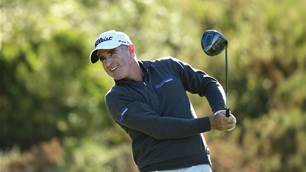
Video interview: Drinks With ... Matt Millar
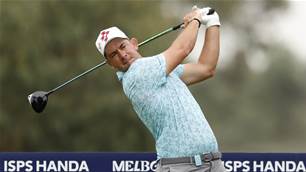
How to watch the Australian Open
